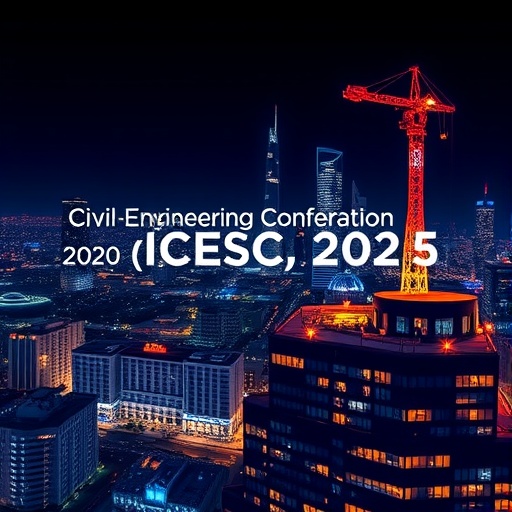The evolution of civil and hydraulic engineering has taken an extraordinary trajectory throughout history. This field has not only been instrumental in shaping physical landscapes but has also significantly influenced societal development. As civilizations have advanced, the demand for sophisticated infrastructure has escalated, compelling engineers to innovate and adapt to increasingly complex challenges. The symbiosis between civil engineering and technological advancement has catalyzed the construction industry’s transformation, particularly in the realm of intelligent construction. This approach intricately weaves contemporary information technology into traditional construction practices, heralding a new era that prioritizes efficiency, sustainability, and smart solutions.
One pivotal development in the modernization of construction is the advent of intelligent construction systems. These systems incorporate advanced technologies, including artificial intelligence, machine learning, and data analytics, to optimize various aspects of the construction process. These innovations enhance project management, improve safety standards, and reduce environmental impacts, demonstrating the potential of technology-driven methodologies. As more engineers and architects embrace these intelligent solutions, the future of construction looks increasingly promising.
The current trend in intelligent construction extends beyond mere technological integration; it embodies a paradigm shift towards a more integrated approach. This shift acknowledges the profound interplay between civil engineering and environmental management, particularly in the context of water resources. Hydraulic engineering has emerged as a cornerstone of intelligent construction, addressing the need for sustainable water management systems. The intersection of civil engineering and hydraulic systems offers innovative solutions to modern urban challenges, such as flooding and water scarcity, essential for a resilient infrastructure.
The upcoming 2nd International Conference on Civil Engineering and Smart Construction (ICCESC 2025) is poised to be a pivotal event for scholars and practitioners in the field. This conference aims to bridge the gap between cutting-edge research and current industrial practices. By creating a platform for knowledge exchange, the conference will showcase the latest advancements in both civil engineering and smart construction technologies. Furthermore, it serves as an opportunity for researchers and industry professionals to collaborate and foster synergistic relationships that advance the construction sector.
In addition to the exploration of intelligent construction, the conference will address various facets of civil engineering. Geotechnical, structural, and hydraulic engineering are just a few areas that will feature prominently in discussions. These disciplines are crucial not only to the built environment but also to the well-being of communities. The emphasis on innovative design and sustainable practices reflects an urgent need to adapt engineering solutions to the realities of climate change and population growth. The dialogue at ICCESC 2025 is expected to deepen the understanding of how such adaptations can be implemented effectively.
Given the ongoing global urbanization trend, intelligent construction has become increasingly relevant. Cities around the world face unprecedented challenges, including infrastructure degradation and increased resource consumption. Intelligent construction methodologies provide tools to address these issues through smart resource management and predictive maintenance strategies. Such approaches not only promise cost efficiency but also align with broader sustainability goals by minimizing waste and optimizing resource use.
As the conference approaches, the call for papers invites researchers and industry leaders to contribute their insights and findings. This collective intellectual effort is essential for advancing the field of civil engineering. Topics such as disaster prevention, green building practices, and engineering informatics will be explored, reflecting the diverse range of challenges faced by the industry. Furthermore, the integration of intelligent equipment and robotics into the construction process signifies a revolutionary shift towards automation and enhanced safety protocols.
A focal point of discussion at the conference will be the role of digital construction technologies. The transition from traditional construction methods to digitized processes is a significant leap towards innovation in the industry. Technologies such as Building Information Modeling (BIM) and virtual reality are transforming how projects are designed and executed. These tools facilitate collaboration among all stakeholders, ensure accuracy in project planning, and enhance communication across teams.
Moreover, the integration of smart construction principles into urban planning can fulfill the resilience and adaptability required in modern infrastructure. Concepts such as green architecture and intelligent building design contribute significantly to achieving sustainability goals while enhancing the quality of life for urban residents. As researchers delve into these concepts, it becomes evident that the future of urban development hinges on sustainable practices, smart technology, and innovative engineering solutions.
In closing, the evolution of civil engineering is a chronicle of adaptation, resilience, and innovation. The importance of intelligent construction cannot be overstated as it heralds a future where technology and engineering combine to create sustainable and efficient infrastructures. The 2nd International Conference on Civil Engineering and Smart Construction is set to shine a spotlight on these developments, promoting discourse that encourages growth and collaboration within the industry. As we progress towards this future, it is imperative that we harness the potential of intelligent construction to address contemporary challenges and build a sustainable legacy.
The dynamic shifts in civil and hydraulic engineering reflect broader societal innovations and challenges; however, they also underscore a continuity of purpose to build stronger, safer, and more sustainable communities. The convergence of technology and engineering signifies a pivotal moment that not only redefines construction practices but also reshapes how we envisage the future of urban living. As we embrace these advancements, the collective efforts of researchers, practitioners, and policymakers will be instrumental in realizing the vision of smart, resilient cities worldwide.
Subject of Research: Intelligent Civil Engineering and Smart Construction
Article Title: Advances in Intelligent Construction: Shaping the Future of Civil Engineering
News Publication Date: October 27, 2023
Web References: [Insert website links if available]
References: [Insert reference details if available]
Image Credits: [Insert image credits if available]
Keywords
Civil Engineering, Intelligent Construction, Hydraulic Engineering, Sustainable Building, Urban Development, Engineering Technology, Smart Infrastructure, Disaster Management, Digital Construction, Green Architecture, Intelligent Design, Predictive Maintenance.




